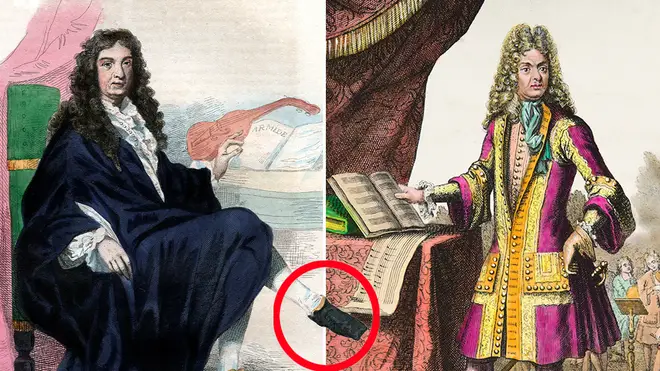Jean-Baptiste Lully: the Baroque composer who died of gangrene after stabbing his foot with a conducting stick
2 June 2021, 11:16

Jean-Baptiste Lully met a rather sticky end. Quite literally, by his own conducting staff.
The 17th-century composer Jean-Baptiste Lully was a violin virtuoso, and master of French Baroque music. A favourite of Louis XIV, Lully spent most of his career composing in his court, writing trios, operas and ballets as music master of the royal family.
Lully, it is remembered, loved to compose music that could be danced to.
As many conductors did at this time, the Italian-born maestro would conduct his work using a large wooden conducting staff in lieu of today’s lighter, wand-like baton.
One evening, he was conducting a performance of Te Deum, a work he had composed to celebrate Louis XIV’s recovery from surgery.
Rather ironically, this was the night Lully accidentally struck his own foot with the staff.
Gangrene infected Lully’s leg after this accident, but he refused to have his leg amputated to prevent the infection spreading. He wanted to be able to dance, and to Lully the joy of dancing eclipsed any concerns about potentially fatal gangrene.
Read more: 6 pieces of music that killed their composers

Giovanni Battista Lulli, Marche pour la Cérémonie des Turcs | Modo Antiquo
But as doctors predicted, it spread through his body and eventually killed him.
Lully is a fascinating figure in music history. Unlike many of his contemporaries, Lully died a rich and successful composer, after years of chumming up with Louis XIV.
As a young teenager, Lully was sent to Paris, where his gifts for dancing, violin and guitar earned him the moniker ‘Baptiste’. Young Louis XIV spotted the young man, and by 1653 Lully had been made royal composer for instrumental music.
When Louis XIV ascended to the throne, he made Lully superintendent of the royal music and music master of the royal family. In the King’s court, Lully wrote trios and dances, and even enjoyed a decade-long collaboration with the playwright Molière, writing incidental music for his plays.
Read more: 15 great classical composers who also happened to be gay
Lully also had a rather scandalous private life, and had multiple affairs with both men and women. The King was offended by the encounters but, considering the composer a dear friend, always forgave him.






















